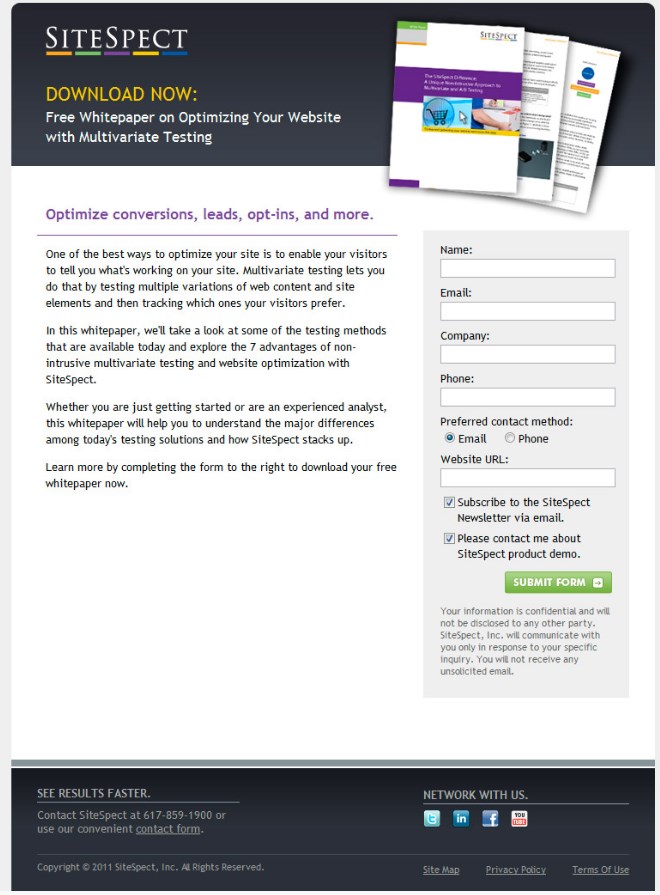I get clients all the time who show me their “landing pages.”
Though well-intentioned, they misunderstand what actually makes a “landing page” exactly that.
It’s important to know what a landing page is precisely because it affects your conversions.
When you make a page to be a “landing page,” that changes how you design yours and how you write the copy.
And finally, that can create a dramatically negative or positive impact on your conversion goal for your page.
So, let’s get into it:
What a Landing Page Is
A landing page is one your users cannot click to navigate to. It falls outside of your website’s main navigation entirely.
Why?
Because landing pages have a specific goal – one action you want your visitor to perform.
And that’s it!
You’ll likely have an entire campaign driving traffic to your landing page.
In most cases, the conversion goal is filling out a form to get free content of some kind. But, it could also be to call your sales team, sign up for a demo, or even buy your product or service now.
Traffic comes to landing pages from social media profiles, Google search, or paid advertising campaigns from search or social media.
What a Landing Page Is Not
Website pages you can click over to from the main navigation menu often get mistakenly called “landing pages.”
While traffic may land on them directly from the web or other sources, they do not qualify as “landing pages” because:
- They’re not for a specific campaign
- They have all kinds of things to click on
- They may have more than one call-to-action
Check Out an Example of A True Landing Page and See What I Mean
So, something like this is what you’d consider a “landing page.” As you can see, you can only take one action on the page – filling out a form. You do have social network icons to click on, but they come at the bottom corner of the page where they likely won’t get any attention. With a minimal amount of images, this landing page also likely loads fast.
Clearly, SiteSpect set this page up for a specific campaign:
What SiteSpect Could Test
Now, no landing page is perfect on the first try. You always have things you could test.
What could SiteSpect test?
These things:
- Clarify the benefit of “optimizing your website.” What does that mean? Why should anyone want to optimize their website? Does it load faster? Get more conversions?
- More form fields. The more form fields you have, the fewer but more qualified leads you get. The reverse becomes true with fewer fields, and around 4-6 would be considered on the shorter side.
- A different white paper title. White papers shouldn’t be “how-to” guides on advantages of multivariate testing with the authoring company’s tool. Prospects want objective information in white-papers, with a “pitch page” at the end. This could greatly affect the conversions.
So, that’s what landing pages are and how they work. While A/B testing a landing page gets quite scientific, many companies make simple mistakes that could result in lots of leads if changed.







Leave A Comment